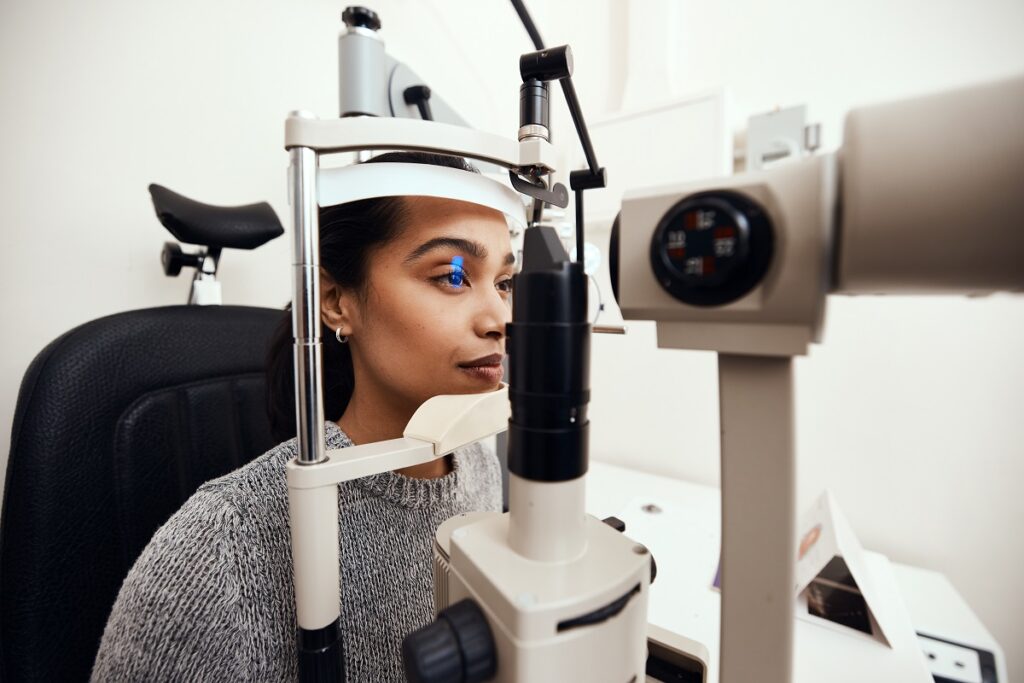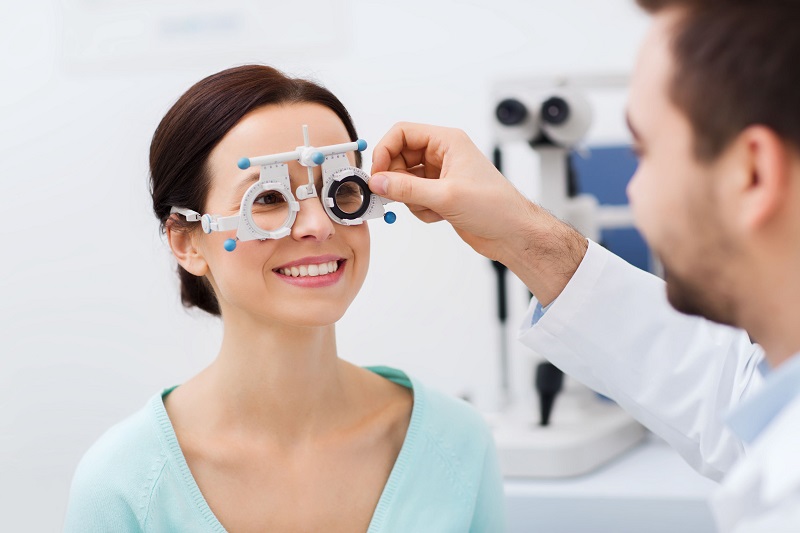The Relevance of Regular Eye Tests: Insights From a Seasoned Optometrist
Routine eye exams offer as a vital component of health care that expands beyond plain vision modification. An experienced eye physician can supply understandings into how these analyses not only find typical eye conditions but also reveal underlying health and wellness concerns that may otherwise go unnoticed.
Benefits of Normal Eye Examinations
Although lots of individuals might neglect the value of routine eye examinations, these evaluations play a critical role in preserving total health and wellness and wellness. Routine eye exams offer not only to evaluate vision but likewise to find very early indicators of systemic health problems, including diabetes mellitus and hypertension. By recognizing these problems at their inception, individuals can get prompt interventions, significantly enhancing long-term outcomes.
Furthermore, eye examinations can help in checking existing wellness concerns, making sure that any type of modifications in vision or eye wellness are quickly resolved (optometrist). The analyses permit customized referrals regarding eyeglasses, way of life modifications, and safety measures against possible eye stress or damage
Beyond physical wellness, the advantages of routine eye exams prolong to boosting top quality of life. Boosted vision helps with much better efficiency in everyday activities, from reviewing to driving, thus adding to better independence and safety. Inevitably, prioritizing eye exams promotes an aggressive approach to health administration, equipping people to take charge of their well-being. Regular examinations are a vital part of a detailed medical care technique, guaranteeing that both vision and general health are protected throughout life.
Common Eye Conditions Detected
Routine eye tests contribute in identifying a selection of common eye problems that can dramatically influence vision and total health. Amongst the most common problems recognized during these examinations are refractive mistakes, including nearsightedness (nearsightedness), hyperopia (farsightedness), and astigmatism. These problems typically materialize as obscured vision and can be conveniently fixed with prescription glasses or contact lenses.
An additional typical issue is glaucoma, a group of eye conditions that harm the optic nerve, usually linked to increased intraocular pressure. Early detection is vital as it can stop permanent vision loss.
Age-related macular degeneration (AMD) is another considerable condition that impacts central vision, specifically in individuals over 50. Ultimately, diabetic retinopathy, a problem of diabetes, can bring about extreme vision disability otherwise kept an eye on on a regular basis. Through comprehensive eye exams, these problems can be recognized early, permitting for timely management and treatment to maintain vision and enhance quality of life.
Relevance of Very Early Detection
Very early discovery of eye conditions plays a crucial duty in preserving vision and protecting against substantial health and wellness problems. Several eye diseases, such as glaucoma, diabetic retinopathy, and age-related macular degeneration, can progress calmly without recognizable signs in their beginning. By the time signs and symptoms show up, permanent damage may have happened, causing long-term vision loss.
Routine eye exams facilitate very early diagnosis, permitting prompt intervention and treatment. For circumstances, treating raised intraocular stress can stop the onset of glaucoma, while taking care of blood sugar level degrees can considerably reduce the danger of diabetic person retinopathy. Furthermore, problems like cataracts can be effectively managed with surgical intervention when recognized early.

Just How Often Should You Go To?
Identifying the regularity of eye tests is essential for maintaining ideal eye wellness and vision. The general referral for grownups is to have a thorough eye test every one to two years, relying on private danger factors and age. For people matured 18 to 60, an examination every two years is typically enough if no vision issues exist. Nevertheless, those over 60 need to consider yearly exams, as the threat of age-related problems raises considerably.
Individuals with certain threat variables, such as a family history of eye disease, diabetes, or existing vision problems, might call for even more constant examinations. Kids should have their initial eye examination at 6 months of age, followed by added examinations at age three and before getting in institution. Normal exams throughout childhood are crucial as vision can change quickly during developmental years.
Inevitably, the frequency of gos to ought to be customized to every person's circumstances, consisting of way of life, occupational threats, and any pre-existing eye conditions. Consulting with an eye treatment professional can offer tailored suggestions, making certain that your eye health is routinely kept track of and maintained.
Tips for Your Eye Exam
Preparing try this website for your eye exam can enhance the effectiveness of the see and ensure a detailed analysis of your eye health. To maximize your time with the eye physician, it is critical to gather pertinent information prior to your consultation. Beginning by compiling a checklist of any medications you are presently taking, including non-prescription drugs and supplements, as these can influence eye wellness.
In addition, document any kind of signs you have experienced, such as obscured vision, discomfort, or migraines. This info will help your ophthalmologist in diagnosing prospective problems. If you put on glasses or contact lenses, bring them along, even if you don't wear them frequently. This will help the physician analyze any adjustments in your vision.
It is also valuable to have a household background of eye problems at hand, as genetic aspects can add to your eye wellness. Finally, think about arranging your examination for a while when you are much less hurried, enabling you to ask questions and review your problems thoroughly. By preparing appropriately, you make certain that your eye test is productive and that your eye doctor has all the essential information to provide the very best care possible.

Final Thought
Regular eye examinations play a crucial role in preserving both vision and total health. Eventually, prioritizing comprehensive eye analyses contributes dramatically to the preservation of vision and the improvement of high useful reference quality of life, highlighting the requirement of regular eye treatment in precautionary health care strategies.
Normal eye examinations are instrumental in identifying a range of common eye conditions that can significantly affect vision and general health.Determining browse around here the frequency of eye examinations is crucial for preserving ideal eye wellness and vision.Preparing for your eye exam can boost the performance of the browse through and ensure a detailed analysis of your eye wellness (optometrist). By preparing adequately, you make certain that your eye examination is efficient and that your eye physician has all the needed info to give the ideal treatment feasible
Inevitably, prioritizing comprehensive eye evaluations adds substantially to the preservation of vision and the enhancement of top quality of life, underscoring the necessity of regular eye care in preventative healthcare approaches.
Comments on “Seasoned Optometrist for Comprehensive Eye Exams”